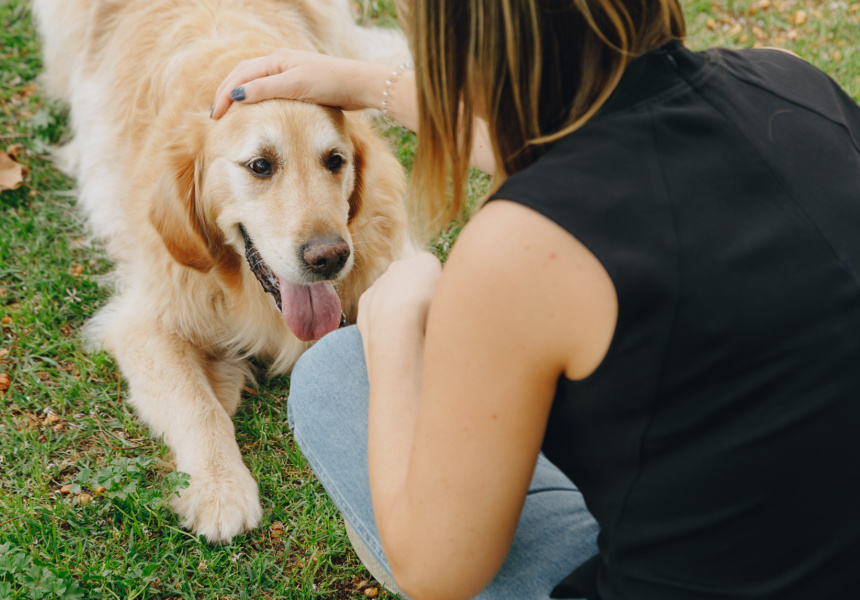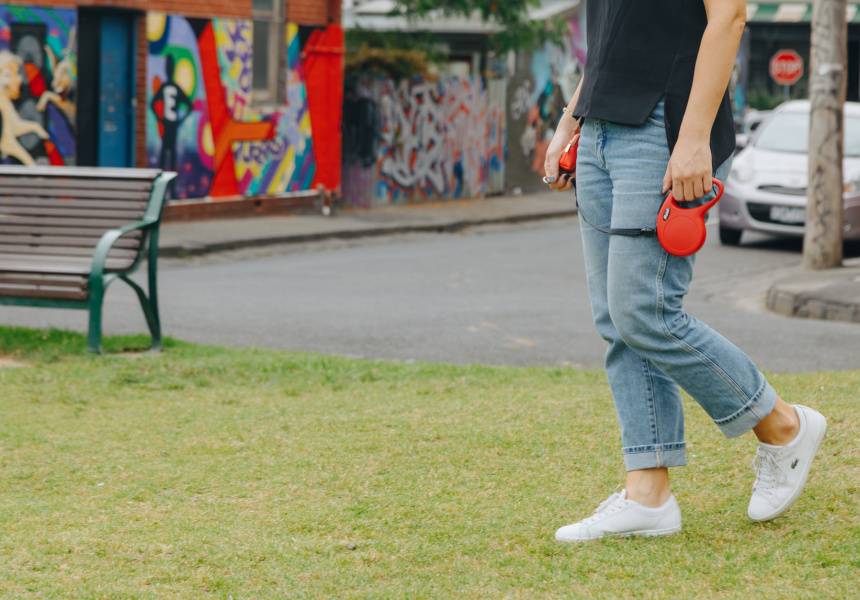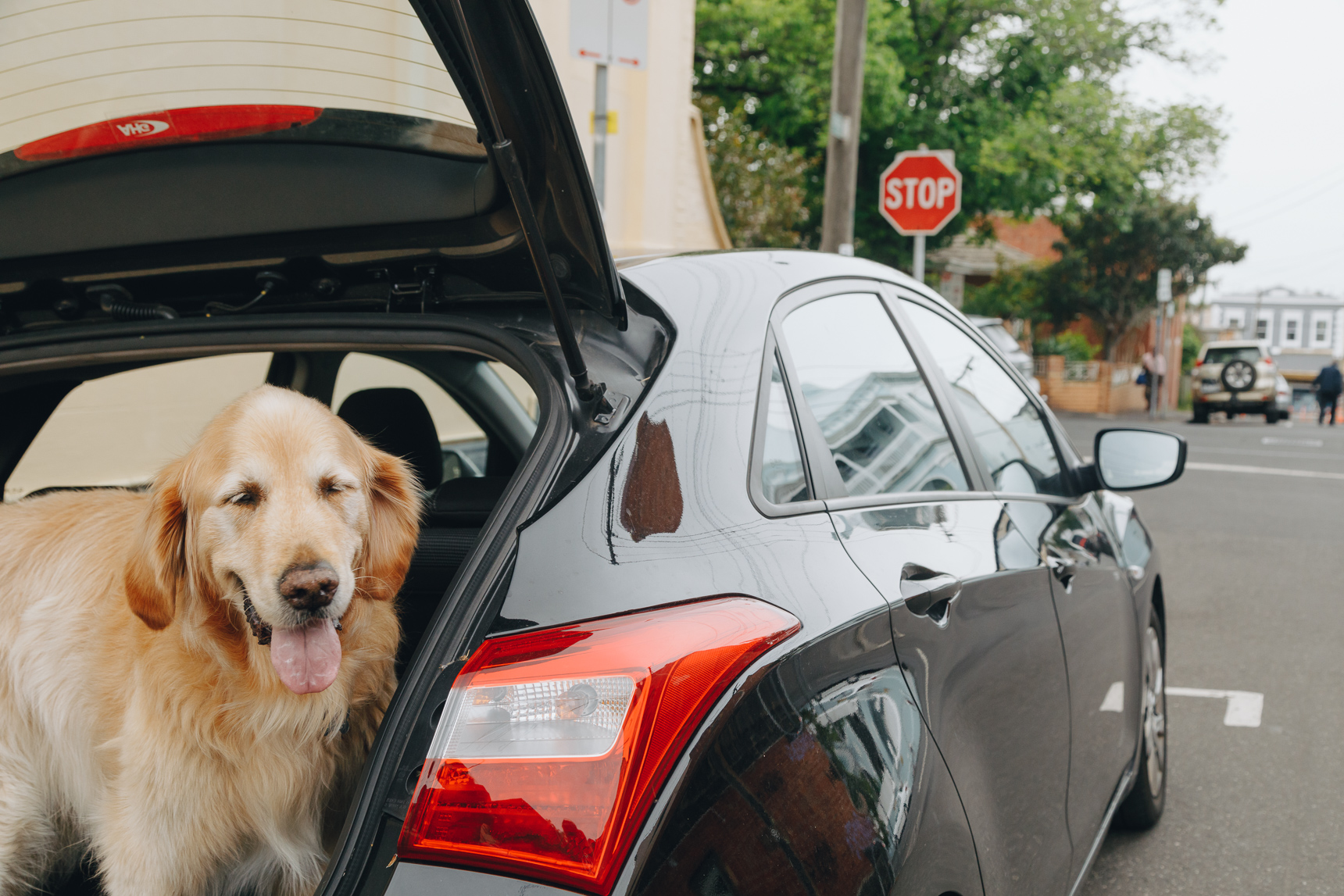Perhaps your pooch is getting on in years, or maybe you’ve adopted an older canine companion who needs some extra-special care. Whatever your situation, caring for a senior dog is very different to caring for an energetic pup.
“I think it’s a really good thing when people adopt older dogs,” says Petstock’s vet operations manager, Dr Hay In Chung. “Yes, they do need more care, but they can be perfect companions especially for people looking for a furry couch-mate”
Older dogs suffer from the same things that people do as they age – arthritis, cognitive loss, bad hearing, weight gain. “The first step is to accept your dog is ageing, or can age, like us,” says Dr Chung. “Ageing is a natural progression, not a disease. You just need to make modifications to your pet’s lifestyle."
Never miss a moment. Make sure you're subscribed to our newsletter today.
SUBSCRIBE NOWCaring for arthritis
Arthritis is incredibly common in older dogs and one to watch out for by taking note of your dog’s physical responses. If they begin to slow down on walks, become disinterested in exercise or movement, or move in a way that indicates they are stiff or in pain, take them to the vet to get them checked out.
“We can always start them on a glucosamine supplement – there are so many types of arthritic supplements out there,” Dr Chung says. Giving them a wedge cushion to help with climbing on and off furniture, or a ramp to help with trips in the car, can be a great aid.
“Again, keep in touch with your vet to see if pain relief is necessary to improve the quality of life for your dog,” says Dr Chung.
Caring for vision and hearing loss
As pets age, vision and hearing impairments can become a troublesome part of the senior lifestyle. “If they start getting a bit of cloudiness in their lens, it may starting impact on their vision too,” says Dr Chung. Owners can often misdiagnose this cloudiness as cataracts. “Sometimes it is cataracts,” says Dr Chung. “But very often it’s the age-related clouding. So best to check with your vet first.”
Dr Chung assures us that most dogs cope incredibly well with gradual vision loss, as long as they remain in a familiar environment where they’ve already memorised the landscape. “But if they go to a new place, they’ll show it,” she says. “So just be mindful of that and guide them through the new environment so they get their bearings as safely as possible.”
As with vision loss, Dr Chung explains hearing loss is not usually a serious issue for dogs. “Just make sure if you take your dog out, especially to a new area, they’re always on a leash,” she says. “Making sure you have a way of tracking them back if you need to, while giving them a bit of leeway to explore the area.” Dr Chung recommends a retractable lead to keep your pet close.
Caring for cognitive loss
“Cognitive loss is probably one of the most challenging ones to treat, because there are supplements and medications you can try, but they don’t necessarily help in all cases,” says Dr Chung. As with humans, cognitive impairment in ageing canines can be a difficult thing for both dog and owner to deal with.
Being cognisant of your dog’s regular behaviour pattern is imperative here, Dr Chung advises. Early signs of cognitive loss can include excessive barking – especially at night – and howling, as well as uncontrolled urination. If you notice these or other major behavioural changes in your senior pup, it’s time to reach out to your vet for assistance and advice.
“Environment enrichment also comes into play here,” says Dr Chung. “It’s just like with humans: if we don’t use our brains and hands, we lose our skills and our brains faster.” With dogs, it’s about keeping brains and bodies active with interactive toys, attention, trips outside and training.
This article is produced by Broadsheet in partnership with Petstock.




